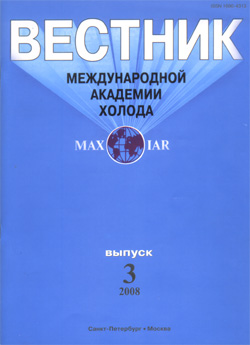
Justification of energy efficient air handling processes in conditioning systems

Annotation
Possibilities and prospects of assessing the quality of air conditioning system solution by quantitative indicators based on the system approach of energy-saving modes by Professor A.A. Rymkevich are considered. In accordance with the generally accepted formulation, technological parameters expressed by a numerical characteristic describe the performance of the system. The choice of indicators and optimization criteria is one of the main issues of the system approach. An important role is played by oriented indicators, which are characterized by some predetermined numerical value for given conditions. Then, any decision to be made can be evaluated by the degree of deviation of the true value from the limiting indicator. The calculation of the criteria of technological indicators should be based on the natural costs, not related to the market conditions. The formation of the quality of a particular air conditioning system solution is based on the technological sequence of thermal and humid air treatment processes, which are implemented through the corresponding modes of operation of the system during the period of operation under consideration. Therefore, an important link at the stage of conceptual design of air conditioning systems is a reasonable choice of technology for heat and humidity treatment of air, which includes a sequence of optimal, from the point of view of consumption of technological resources (consumption of heat, cold, air and water). A method of forming energy efficient air conditioning systems on the basis of a statistical model of climatic parameters of ambient air for different time intervals and climatic regions is proposed.
Keywords
Постоянный URL
Articles in current issue
- 90 years of JSC "NPO"HELIYMASH"
- Simulation of heat transfer process in shell-and-tube heat exchanger
- Infrared heaters for vacuum drying under the pressure close to the one of the triple point of water
- Justification of energy efficient air handling processes in conditioning systems
- Verification of numerical simulation results for low-flow centrifugal compressor stage with experimental data by Numeca Fine/Turbo and Ansys CFX software packages
- 3D modeling in designing refrigerating units for ice arenas
- Implementation of the HACCP tool and microbiological quality of agbelima production on a site in South Benin
- Determination of the shelf life for dried fish-vegetable snacks based on meat and bone fish raw materials
- R-245fa phase equilibrium line modeling method
- Thermal conductivity of liquid hydrofluorochloroderivatives of olefins. Correlations and a priori estimates
- Determination of the indirect physical and mechanical characteristics of sea ice – ulmate strength in bending
- Requirements for manuscripts in the Journal of IAR
